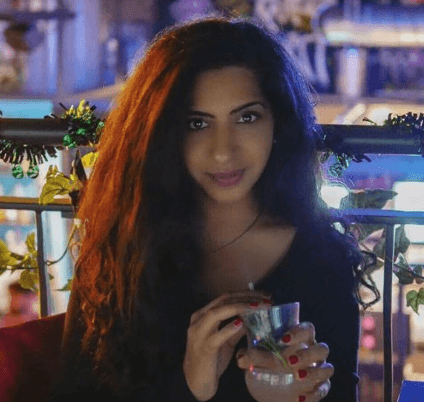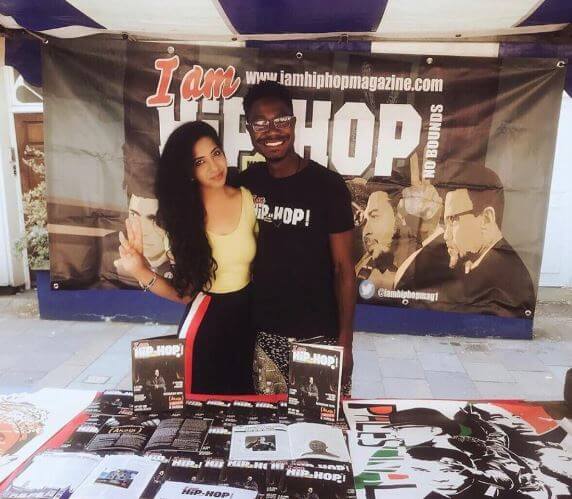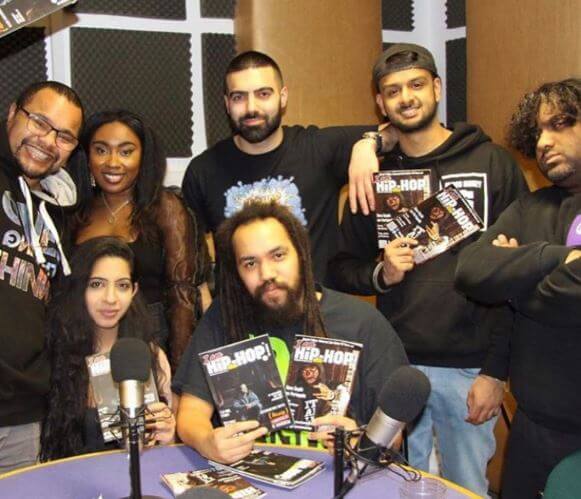
“Wait what? You run a hip hop magazine?! You? Yes I dooo… And guess what today my baby I Am Hip Hop Magazine turns 8. (Rishma Dhaliwal, June 26th 2020).”
Having seen that it was the I Am Hip Hop Magazine’s (IAHH) birthday, I wanted to mark it with something. This is because the magazine is a wonderful and inspired creation. And also, the editor, Rishma Dhaliwal, has been so extraordinarily kind, dedicated and a delight to work with. When I saw the comment above, posted on Facebook, it triggered a whole load of thoughts and questions for me, and an even greater desire to put these in print. So I approached Rishma for an interview, wanting to tap into her ethos and vision in her own words.
Her quote made me laugh, because, being a Jewish woman writing for a hip hop magazine, I’m also met with all kind of responses. But aside from humour, it raises more serious concerns. It touches on matters of stereotypes, gender, ethnicity, and racism, which come in all forms and guises. Issues of identity are confusing, especially in this era, where purity of race is almost obsolete and heavily diluted, and gender is fluid. For Rishma, these are challenges she is faced with constantly.

Rishma describes herself as an Indian woman from London with a mixed religious background. Categorisation is hard, and we both wonder why it is necessary. As Akala says, “lately, I’ve been confused by the boxes, because to me, they only breed conflict”. But it does seem pertinent because it comes up so often, and education is key. For Rishma, much of the comments are born through ignorance rather than malice: “Many people assume I am male. I used to correct them all the time. People used to say ‘hey bro’, all the time, but it doesn’t bother me anymore “. But despite changes and progress, Rishma does admit that there is still misogyny in the genre, and that needs to be addressed: “We can’t just slip it under the carpet”.
That the magazine has reached its 8th year is testament to the sheer hard work from both Rishma, and Gata Malandra, who helped to set the project up. When chatting about the lock down, Rishma spoke with stalwart determination : “Things are going to be thrown at us all in life. We have to deal with it. We will make it”. From having worked with Rishma for a few years now, and from the interview, I find her to be insightful, and strong. The notion, ‘we will make it”, testifies to her chasing her dreams. She does not give up. For example, when she wants an interview with an artist, she perseveres, even when she is blockaded. This is often when IAHH is seen as too small a publication for some PR people to be interested. She keeps on and thinks “Why not us!”. When it comes to her ‘baby’, IAHH, Rishma Dhaliwal is a dog with a bone, yearning to push it as far forward as possible.
Personally, I started off writing for IAHH magazine around five years ago. I had been writing for another online magazine, promoting unsigned acts. But I began introducing hip hop artists and implicitly, it felt unwelcome. I came across IAHH and was fascinated by it. The fact that it was run by two women was the exact antithesis of what I expected. It intrigued me, amazed me, and showed up my own cultural bias by having those conceptions and assumptions. Instantly I was drawn to them. They were different. Their ethos was different. I saw that it was not just a music magazine. It also had poetry, a writers corner, education, and other sections. This was a movement, a whole culture, not just one part of it. It was everything I was looking for.
The team feel to me like a family. This, Rishma is happy to hear, because she always wanted IAHH to be a collective. They have nurtured my needs throughout the years. Sometimes I can’t write for long periods and have only been met with empathy. Their compassion makes me want to give back, and this interview feels like I can do something. Until I spoke with Rishma I did not know just how much work she has to do on a daily basis. Quite simply, her work rate is amazing. She tells me she has 50 submissions a day of new music and this is on top of her day time work. I don’t know how she does it, though she does state that she has “an amazing team”.

The history of the magazine dates back to when Rishma was studying in university. Her thesis was on how hip hop acted as a social movement for black America. Here she was influenced by the more politicised hip hop bands such as Dead Prez. She spent some time in America and connected with a man who ran the National Hip Hop Convention. Once Rishma saw this real possibility of a link between music and a political movement, she was blown away. She saw that “Hip hop had this potential for change within it”.
It was during the London riots that Rishma finally wanted to do something positive with some urgency. This is where she, coupled with Gata Malandra started a charity, No Bounds. This is a project to inspire disaffected young people, ex offenders, and so on, using the culture of hip hop as a tool to break the cycle, through music and rap therapy. This reminds me of a quote from the legendary poet, Benjamin Zephaniah: ”Don’t like poetry? But rap is Street poetry, so that is a fallacy”.
No Bounds gave birth to IAHH Magazine. 8 years ago the first issue was launched. Its ethos is around empowering people. It takes hip hop back to its roots. They actively try to give a voice to the voiceless. It doesn’t prioritise big acts already pushed forward into the mainstream, but those who have smaller exposure. Lowkey in his song, “voice of the voiceless”, says that very voice is one of “social imbalance “. This, Rishma is seeking to rectify in her own way, on a platform that both strives, and deserves, to be bigger.

She says that hip hop is a culture. Rap is part of it, but only a piece. As others have said, rap is something that you do, hip hop is something you live. So, Rishma makes clear, “if some dance says something, we will feature it, if poetry says something, we will feature it, if a story says something, we will feature it”. Hip hop as a way of life looks to elevate talented people with no forum. Rishma has laid out what she wants to achieve, development of a way of life, and change, with education as a tool. Of course there is still work to do. Money and finance is always an issue. Rishma’s dream is to be able to do this all full-time. With her tenacity, I don’t doubt her. Already IAHH has around 2 million visitors a year. But the more exposure the better, in order to turn this dream into a reality.
I ask Rishma about her most memorable moments. Meeting Dead Prez, one of her early introductions to politicised, conscious hip hop, stands out. Sometimes groups you meet are different to their recorded image and values they project. To Rishma, Dead Prez were true to themselves, they were “intelligent, beautiful, people”. Also, meeting a member of A Tribe Called Quest she found to be an amazing experience. I ask her what she is listening to now. She mentions a new artist called Otis Mensah, from Sheffield, and his song ‘Breath of Life’, among others. She describes herself as a lyric person. The words have to stand out and touch you. Like Lauryn Hill once said, “Hip hop started off in the heart “.

What Rishma Dhaliwal values in her music is integrity. She loves it when there is no disparity between the recording and the real identity of the artist face to face. After interviewing Rishma I too, am not disappointed. What she values, what she says, she herself displays. She is an amazing person, who has given so much to her cause, and still has so much to give. She tells me of lying in bed at night with everything whirring through her mind that she has to do for ‘I Am Hip Hop’. Her work is exhausting. But she does it. And she loves her ‘baby’. She has given birth to a wonderful thing. I can only think of the words of The legendary writer, Maya Angelou, to apply to Rishma:
“I think a number of leaders are, whether you like it or not, are in the hip hop generation. And when they do understand enough, they’ll do wonders. I count on them”
